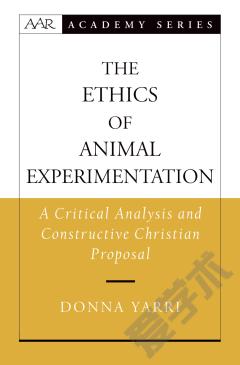The Ethics of Animal Experimentation —— A Critical Analysis and Constructive Christian Proposal
----- 动物实验伦理学
The ethical treatment of animals has become an issue of serious moral concern. Many people are challenging long-held assumptions about animals and raising questions about their status and their treatment. What is the relationship between humans and animals? Do animals have moral standing? Do we have direct or indirect duties to animals? Does human benefit always outweigh animal suffering? The use of animals for experimentation raises all of these questions in a particularly insistent way. Donna Yarri offers an overview of the current state of the discussion, and presents an argument for significantly restricted animal experimentation. She points to the important similarities between humans and animals, arguing that the actual differences are differences of degree rather than kind. For that reason, she says, we must rethink our use of animals in experimentation. Animal cognition and animal sentiency together are the basis for the argument that experimental animals do have rights, which Yarri here enumerates. Christian theology, she shows, supports the existence of animal rights and contains additional resources within which a more humane animal experimentation can be worked out. Animal experimentation is not completely ruled out, and Yarri provides a model for what benign experimentation would look like. She concludes with a concrete burden-benefit analysis that can serve as the foundation for informed decision-making.
{{comment.content}}








 京公网安备 11010802027623号
京公网安备 11010802027623号